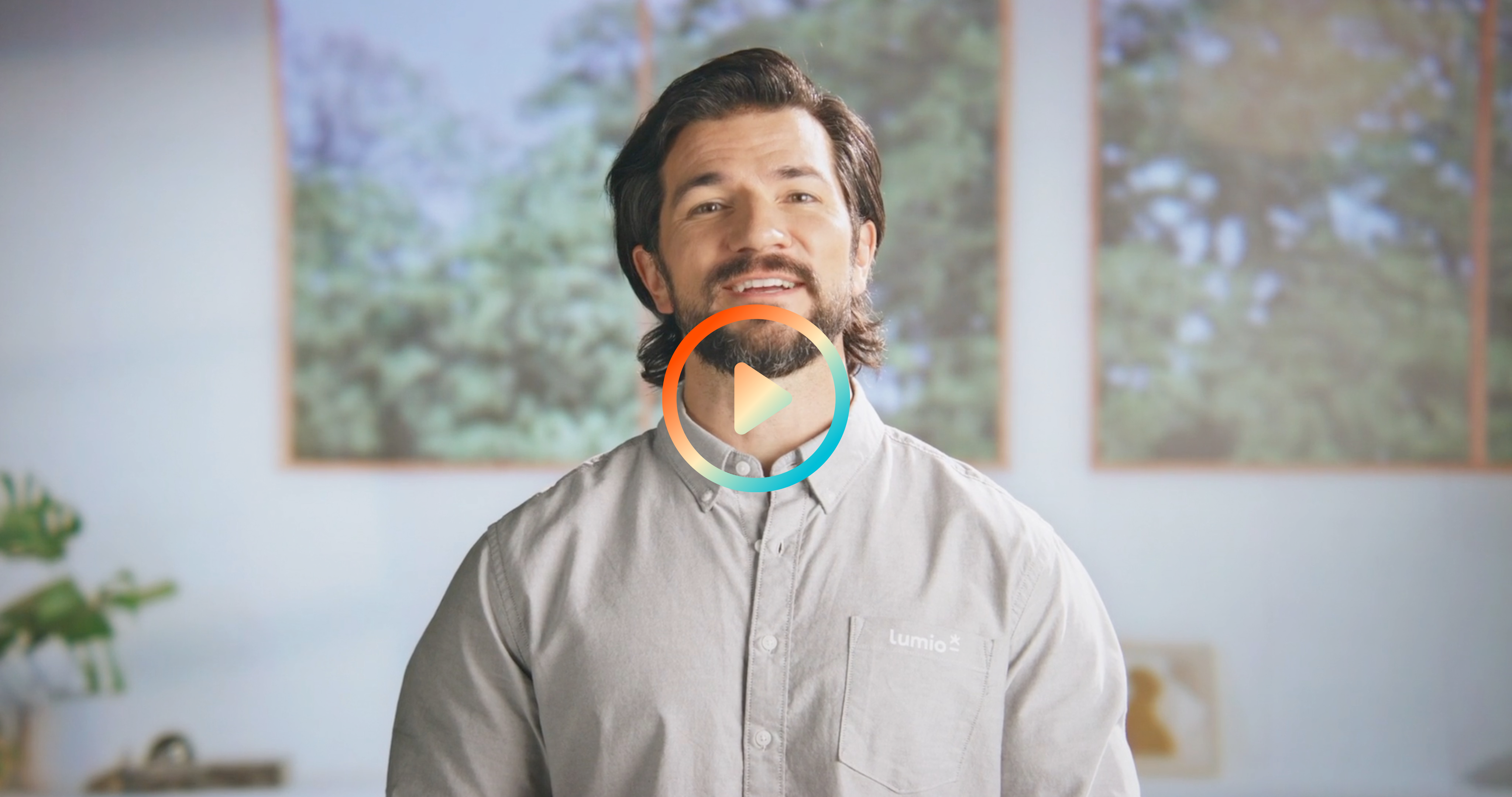Will My HOA Allow Solar?
What You Need To Know About Homeowners’ Associations and Switching to Solar

by Alex Kelleher
5 min read - Published on 05/10/2022
While Homeowners' Associations, or HOAs, often get a bad rap for strict and sometimes unusual rules for the neighborhood, the responsibility of the HOA is to maintain your property value by enforcing defined standards within the community.
When making the switch to solar, it’s important to realize that your HOA may be involved in the process. Some HOAs have rules that could potentially restrict your ability to switch to solar, but before you automatically assume your HOA will deny your request, make sure you learn more about your HOA’s rules and how to make them work in your favor. You might be surprised to learn that most HOA’s will be willing to give you approval on your solar project with the right information.
Are You In an HOA?
When you're ready to switch to solar, your HOA might be the last thing on your mind. Many HOAs are fairly hands-off so some residents might not even realize they're part of one. They can go by many names like "condo board" or "property owners' association."
To see whether you're in an HOA, check your property deed. If you're in an HOA, it will show up as a type of deed restriction. Without getting too deep into all the legalese, an HOA is a type of private organization that manages a neighborhood. If you buy a property in an HOA community, part of the terms of the sale will include you agreeing to abide by HOA rules.
What's the Purpose of an HOA?
Most people associate HOAs with a strict list of rules. This can include anything from lowering your music so as not to disturb your neighbors to getting any structural additions approved by the board. Typically any new construction additions will need to be approved by the HOA before any work is completed.
However, setting up rules for the community isn't the only thing your HOA does. HOAs also manage community property. They might also be responsible for the upkeep of street lights, sidewalks, and even roads.
Your HOA will also be in charge of any neighborhood amenities. If you live in a neighborhood with a pool, gate, playground, tennis court, or community center, the HOA is the one that handles these things. They run the amenities, perform any necessary repairs, and coordinate when and how residents can are allowed use them.
Why Would an HOA Ban Solar Energy?
While it might seem unreasonable for an HOA to have restrictions on residential solar, these are typically some of their concerns:
- General aesthetics
- Disruption of neighborhood uniformity
- Inconvenience to neighbors
- Changes to electrical grid
- Concerns about safety
Understanding why an HOA might not allow solar projects will help you handle your request for approval more smoothly. Try to understand the board’s concerns so you can address them promptly.

HOAs Are Concerned With Keeping the Neighborhood Looking Nice
The most common reason HOAs might be against solar is aesthetics. Most HOAs prioritize having a well-maintained, attractive neighborhood filled with similar-looking homes. In a neighborhood where people can't change the color of their trim, installing a big row of solar panels can be a major distraction.
The good news is that most HOAs are willing to work with you if they see the design renderings beforehand. Compromising by using the back of your roof can also be a great option.
Your Neighbors Might Find Your Construction Project Annoying
Involved HOAs work hard to keep all residents happy, so you might run into issues if your neighbors don't approve of your plans. However, we will be happy to work with you to schedule the installation at convenient times that will limit the impact on your neighbors. Here at Lumio, we complete nearly all installations within 8 hours—making it quick and efficient for you and your neighbors.
The HOA Might Not Understand How Solar Works
Solar as a technology is still new, and misconceptions around the idea are rampant. Your HOA might have fairly unrealistic concerns around solar panels catching fire or causing surges on the neighborhood's power grid. While these aren't problems caused by solar panels, a misguided HOA board could use these to halt your solar dreams in their tracks.
In these situations, your best option is simply to attempt to educate your HOA. Try to explain how solar works and give them information about your proposed project. You can even ask your solar company for resources you can provide to the HOA.
How to Work With Your HOA To Get Your Solar Approved
While there might be some merit to your HOAs restrictions on residential solar, there are several strategies you can use to get the approval you need to make power personal.
- Check your HOA rules: It's important to start by learning about your HOA and their rules, since every HOA differs. Carefully read your HOA bylaws to see whether solar is allowed. Keep in mind that some HOAs won't even mention solar power. Instead, you'll just need to look closely at their rules for home renovation and outside construction.
- Discuss your plans at an HOA meeting: Being upfront about your project and its purpose is the best way to go about getting the approval you need. Going behind their back and doing something against the rules will only cause issues. It's better to inform your HOA of your plans before you even start. Keeping them in the loop can even prevent potential citations or fines.
- Work with your HOA to receive permission prior to installation: Oftentimes, your HOA will approve your residential solar project if you communicate with them in advance and provide any information they request. They usually just want to see the design renderings so they know how it will look on your roof. Since Lumio provides you with that already, it’s easy for us to send to your HOA as well.
- Stay on top of HOA discussions: One of the worst things you can do in any HOA situation is ignore them or not provide the information they have requested. This can cause issues that turn into fines and reduce the chance of your HOA ever approving. Stay on top of all HOA requirements, messages, and meetings so you can act promptly.
Educate Your HOA on the Values of Solar
Here are a few of the key benefits of solar to discuss with your HOA to help them better understand the value it adds to the neighborhood.
Eco-Friendly
Most neighborhoods want to find ways they can be more environmentally-friendly. By working with your HOA to approve your solar project, you are opening up conversations that can create more eco-friendly initiatives within the community.
Every homeowner that's allowed to use solar will be lowering the neighborhood's carbon footprint. In fact, neighborhoods that are particularly focused on being eco-friendly may even switch to solar for community utilities like streetlights.
Reduced Reliance on the Power Grid
Having homes in the neighborhood that rely on their own power ends up benefiting the entire community, whether or not your power grid is unreliable. Allowing you to have solar energy means your neighbors are less likely to deal with brownouts or overloads. Understanding this principle helps the HOA recognize the value solar brings to the rest of the neighborhood.
More Affordable
One of the main reasons homeowners choose to switch to solar is the savings that result from the switch. On average, a solar home saves between $35,000 and $40,000 over the life of the system. Rather than being burdened by the rate hikes and fees that are never-ending with your utility company, you have a set payment every month over the life of your solar.
Providing this information to your HOA can prompt your neighbors to think about their personal energy bills and monthly usage. When more people are considering saving money on their utility bills, they're more likely to persuade the HOA to allow solar panels, too.
Ways Your HOA Can Help You Install Solar
Since the HOA often handles utilities for community areas, they can be very helpful when you're installing solar. Having them on your side may make it easier to connect your system to the power grid after installation and inspection. Their input can make your project go quicker and more smoothly.
An HOA that approves of your project is also more likely to be understanding of any disruptions that may happen. If they are on board with the plans for your switch to solar, you're less likely to end up with hassles that can pop up during the installation process.
You Don't Have to Be Scared of Your HOA
Ultimately, your HOA doesn't have to be an obstacle to getting solar power. While your first instinct might be to assume that they will be a roadblock, most HOAs are willing to work with you on getting your project approved.
Make sure to be transparent about your project and provide the HOA with any information they request. Because of the positive reputation of solar and the benefit it can provide to the entire community, HOAs don’t have to create a headache for you on your path to energy independence.
Lumio Can Help
At Lumio, we work hard to make power personal. Our team is happy to provide any information to your HOA to help in the approval process. We keep you up to date on your solar process and provide you with all the documents that will help you be successful in working with your HOA.
To learn more about Lumio, get in touch with one of our solar experts today.

